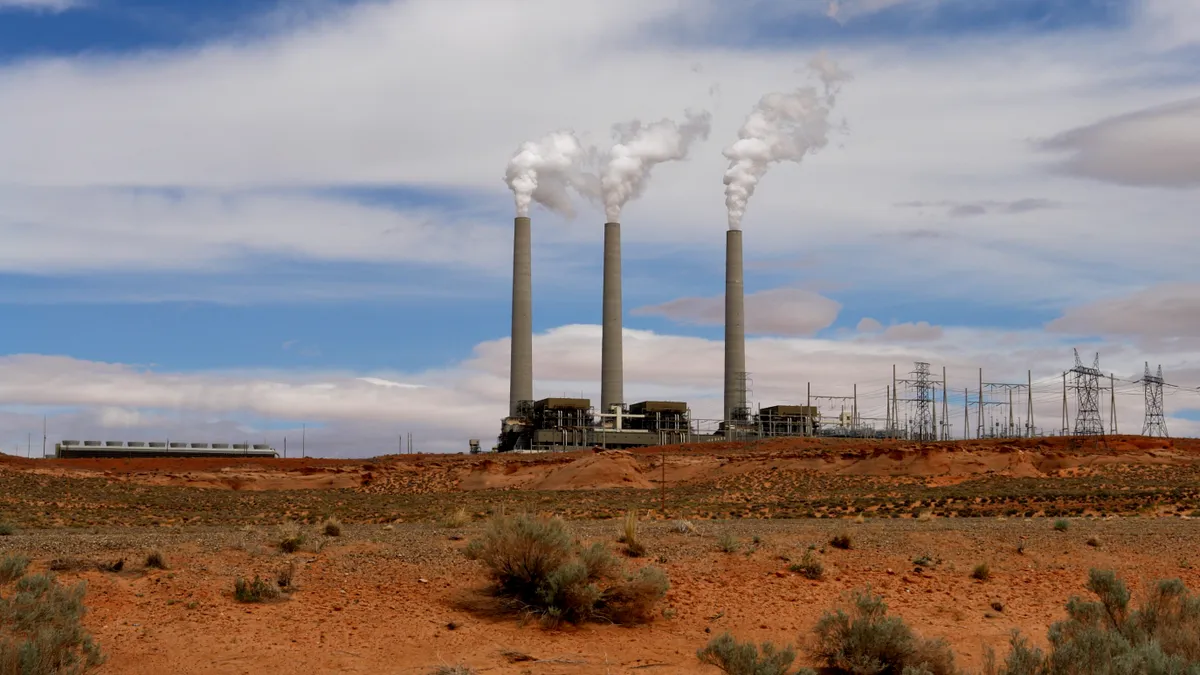Dive Brief:
- The Navajo Nation is considering legislation to extend a lease agreement that would allow a major coal plant to continue operating through 2019 in an effort to provide financial stability while also securing other benefits.
- According to the Arizona Republic, the Navajo legislation aims to retain several pieces of 2,250 MW Navajo Generating Station (NGS) operations, including a railroad, lake pumping station and access to the Salt River Project transmission grid.
- The current lease for SRP's share of the coal plant expires at the end of 2019, but it could take two years to dismantle the plant—meaning a shutdown would need to occur this year unless a new lease is approved by July 1.
Dive Insight:
Salt River Project and other owners of NGS say they need a decision by July 1 to allow for enough time to finalize the lease agreement. The legislation introduced by the Navajo Nation will need to go through several committees before a vote by the Navajo Nation Council.
The coal-fired plant provides about $30 million in revenue each year to the Navajo Nation—about a third of the government's budget. The legislation will require two-thirds of the Council's support, or 16 votes.
There is significant pressure to approve a new lease. A press release from the Navajo Nation also noted that the initial budget proposed by the Trump administration indicated that the Nation would receive less federal funding, adding to budget concerns for next fiscal year.
“This is the reality of the situation,” Speaker Lorenzo Bates, who introduced the legislation to approve a new lease, said in a statement. “There are many moving pieces that need to be considered and factored into the situation that NGS is in.”
Signing a new lease is key to keeping the plant open. In 2016, the National Renewable Energy Laboratory issued analysis that pegged the cost of power generated at Navajo at $38/MWh, compared with $32 in 2015. After 2019, that cost will rise to $41/MWh, reflecting terms of a new lease, and then potentially to $51/MWh in 2030 due to emissions standards now on the books.
The U.S. Bureau of Reclamation owns about a quarter of the NGS plant, while SRP claims 43%. Arizona Public Service, NV Energy, and Tucson Electric Power own the remaining shares.















